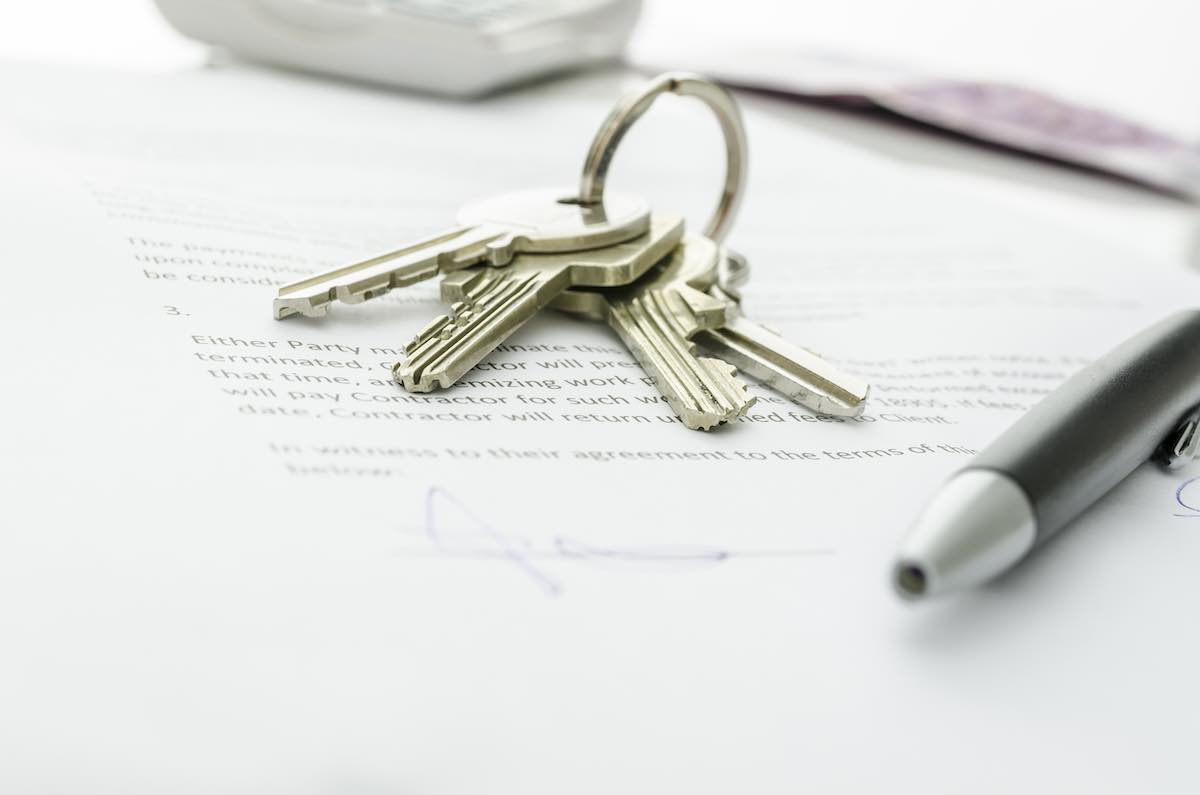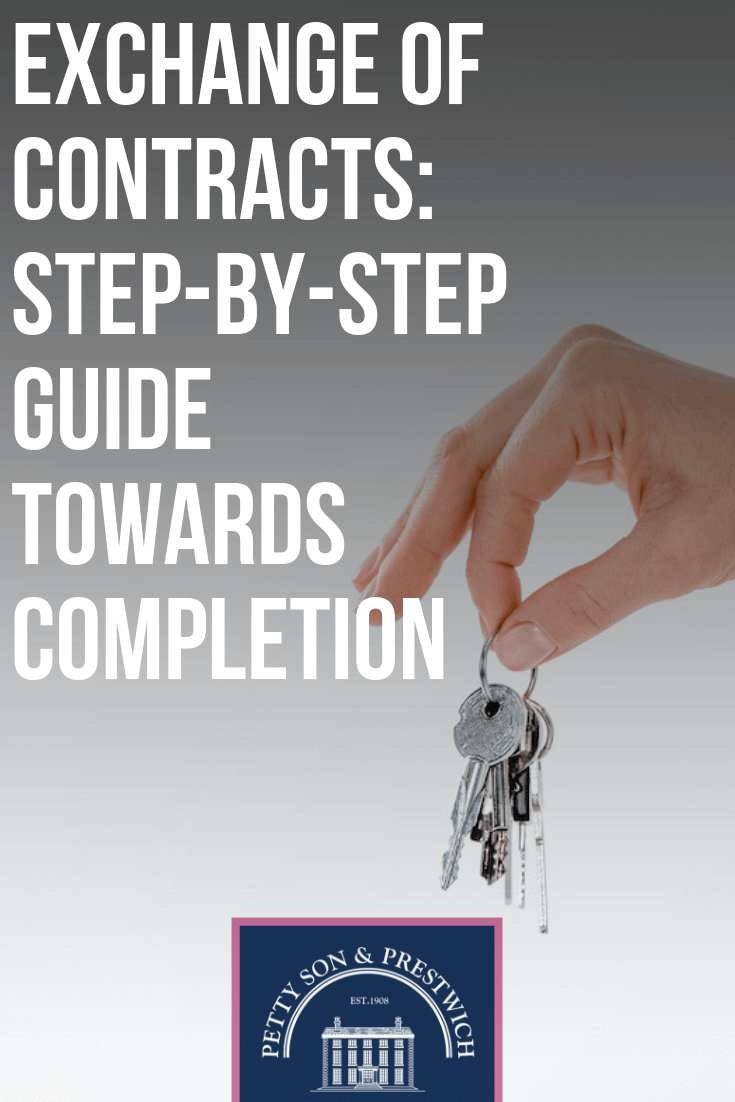Exchange of contracts sounds straightforward enough, but there’s a little more to this part of a property sale than one might expect. Heading towards completion on a purchase or sale can be both thrilling and daunting at the same time, especially if you’ve never done it before!
As with everything else, though, a little knowledge will help ease your nerves and make the process much simpler. In this guide, we’ll cover everything you need to know about exchanging contracts on a property transaction, as well as provide you with a step-by-step guide to the whole process.
Before we get to that, let’s start at the beginning...
What does exchange of contracts mean?
Rather self-explanatory, but worth going over nonetheless.
Exchange of contracts is simply the name given to the time when the two solicitors working on behalf of the buyer and the seller swap documentation to signify an agreement has been reached between both parties with regard to the property sale.
Why do we need to exchange contracts?

Although many have called for an overhaul of the process, the fact remains that neither party are legally bound to any offer made prior to contracts being exchanged. Once an exchange of contracts has been made, however, this changes.
Should either the buyer or seller decide to pull out after the contracts have been exchanged, they will likely be liable for severe penalties to compensate the other party. This is not something that occurs very often, though, so once exchange of contracts has happened everyone can breathe a sigh of relief.
When do I exchange contracts?
Exchange of contracts should only happen once every i is dotted and t crossed. Don’t forget, this process makes the agreement legally binding, so it’s vital to ensure everything is in order before pushing ahead.
Your conveyancing solicitor should make sure you have covered every eventuality before the contract exchange takes place, but some essentials include:
- You have made an offer and it has been agreed
- You have inspected the relevant Law Society forms, such as TA6 and TA10
- Surveys have been carried out
- Valuation has been conducted by your lender
- Searches have been completed by your conveyancer
- The EPC has been checked
- Funding is in place to pay the deposit
- A completion date has agreed upon (this will form part of the contract)
- Buildings insurance put in place (you are liable for the property from the moment contracts are exchanged)
- You have taken the time to read through the contract, and ask any relevant questions
- Once read and understood, the contract should be signed
What is the timeframe for exchange of contracts and completion?
In most instances, exchange of contracts will usually take place anywhere between one to four weeks prior to completion date. It is, however, possible to exchange contracts and complete on the same day, but it’s not for the faint of heart.
Exchanging contracts and completing on the same day opens you up to all sorts of potential headaches, such as having everything packed ready to move without knowing for certain that the move will actually happen! Some lenders may not even agree to it, as many will have a minimum timeframe of five working days between contracts being exchanged and completion day.
How do I exchange contracts?

Once you’re at the stage of exchanging contracts, there’s likely very little remaining for you to do. The exchange of contracts will be handled by your solicitors and usually takes the form of a recorded phone call where both legal firms read the contracts out loud to ensure they are identical. As soon as this stage is taken care of, the contracts are then posted to the other solicitor to finalise the exchange.
At this stage you can start to prepare a list of contacts who need to be informed of your move. Our handy change of address checklist will help.
What happens once contracts have been exchanged?
Congratulations! The hardest part is now over and done with...phew! Once contracts have been exchanged your completion date is virtually set in stone and you can start to prepare for your move.
Now you can start to work through a change of address checklist, get your title deeds sent off to your lender, and register a transfer of ownership with the Land Registry.
What happens on completion day?
Otherwise known as moving day, completion day is where the money is transferred from buyer to seller, keys are handed over, and the move takes place. Exciting stuff!
Step-by-step guide to exchanging contracts and completion
Now we’ve explored the ins-and-outs of exchanging contracts and completion, it’s time to get down to the step-by-step process. We’ll keep this short, as we’ve covered everything above in detail, but this will give you an at-a-glance guide to refer to, should you need it:
- Check everything is in order (see ‘When Do I Exchange Contracts?’ above)
- Sign the contract
- Pay the deposit to your solicitor
- Instruct solicitor to exchange contracts
- Prepare for completion (book removals, pack, inform relevant parties of the move)
- Certificate of Title sent by buyer’s solicitor to lender
- Final checks made by lender
- Money is released
- Seller’s solicitor confirms receipt of funds
- Keys are handed over
- Moving time!
If you need any further advice or would like to ask us about moving home, get in touch. We love helping people move here at Petty’s, so pop in and see us or give our team a call to find out exactly how we can help you find your dream home.


Gregory has been in the industry for over 15 years. He has an innate ability for negotiation and management, which makes him an immensely valued part of the team. He’s also an enthusiastic fisherman who puts his family, and Shih Tzu, Elmo, first.
020 3370 8782 / Email Directly